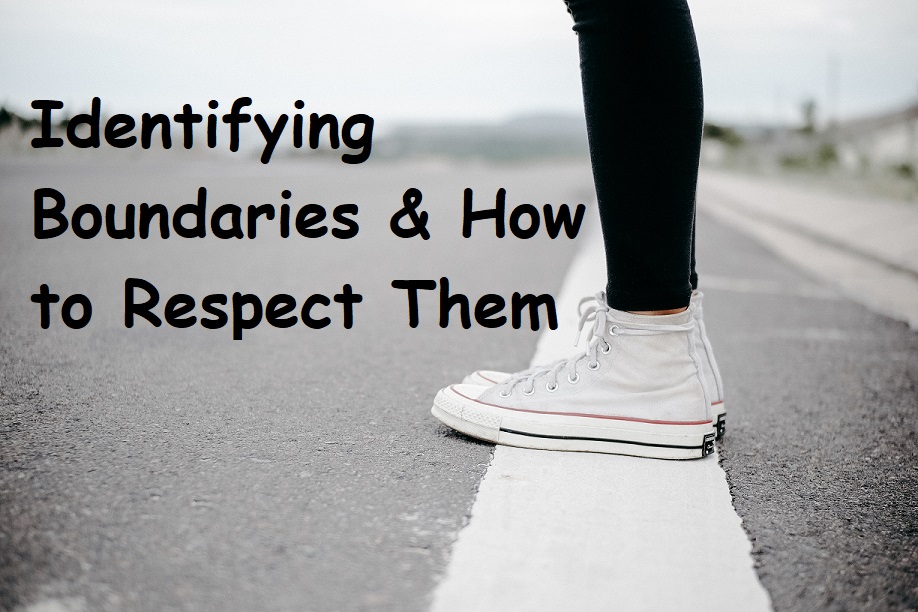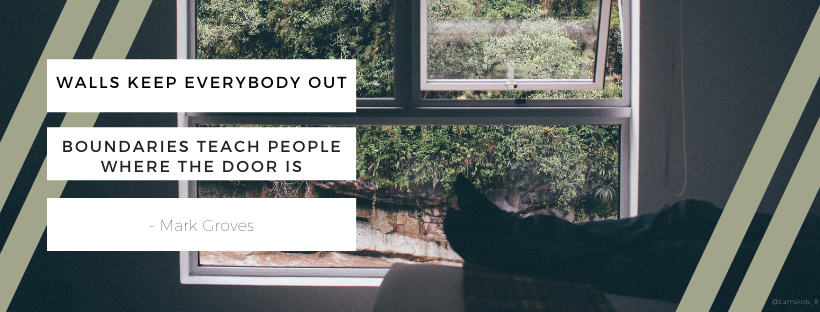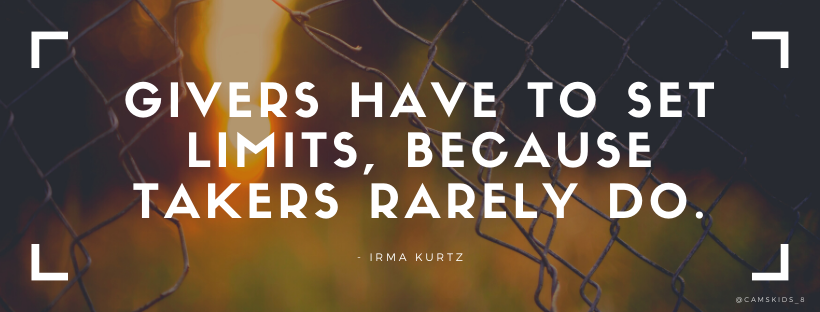
Tips & Tools
Managing your anxiety
Setting Boundaries (Around COVID-19 & Beyond) Part Two

What Boundaries Sound Like & Reassuring Responses
*If you have not already done so, please read part 1 of this two-part series, as it discusses the why, what, when and how to’s on setting boundaries*
Have you identified boundaries you need to set in your life? Perhaps you have even started implementing them? Or maybe you’re still in the thinking and discovery phase. Wherever you are in your journey, we want to take a minute to congratulate you! This is a big step towards putting yourself first and standing up for what you deserve! Or, if you’re here because you want to effectively recognize others boundaries and know what to say (or not say), kudos to you! You are making a big step in supporting others around you.

Okay, so once boundaries have been set, it’s equally as important to learn to communicate them clearly to others. If you think about it...in order for others to respect your boundaries, they need to know what they are. There is nothing worse than someone trying to support you, but end up hindering your progress unknowingly.
So, what do boundaries sound like?
Below we give some examples of some common boundaries being set during these current uncertain times. Everyone’s boundaries are different, so either use them as inspiration or you are welcome to copy them word for word. Whatever you feel is best for you!
- “I understand this must be a difficult time for you right now. I am struggling too. Do you mind if we talk about something other than the coronavirus?”
- “I recognize that this may not feel like a big deal to you, but it is for me. I hope you can respect that and not make jokes about the situation.”
- “I wish we could spend time together, but I have decided to stay home until this is over and practice social distancing. Perhaps we can FaceTime instead?”
- “I greatly appreciate your helpful suggestions, but right now, I’m not quite ready to take others' advice. I just need some time and space to experience my own emotions and thoughts.”
- “I can tell that you are very informed on the current situation, however I do not want to receive updates or breaking news. Please do not share them with me unless I ask.”
- “I respect your opinions and conclusions, however I share different opinions. Would it be alright if we change the topic?”
Other boundary examples:
- “I understand you want me to come out tonight, but I’ve decided to stay home. Thank you for inviting me.”
- “I understand that you’re trying to do what’s best for me, but I am feeling pressured or obligated to do what you’re saying.”
- “When you do _____, it makes me feel _______ {insert emotion, feeling, reaction, etc.).
Example 1. “When you repeatedly ask me why I haven’t studied, it makes me feel stressed and overwhelmed."
- “No thank you.” (yes, this is a full sentence)
- “I understand you simply want to help me. In the future, it would mean a lot if you would ask me how you can better support me.”
As you can see, it is important to be as clear as possible, while maintaining respect. You have the right to your thoughts and emotions, and as do others. Try your best not to take their actions personally, as you would hope the same of others towards you.
To help reassure them, you can always add on a statement about how you would prefer they handle the situation in the future.
Let’s look at Example 1 again. You could add the following statement:
“In the future, could you perhaps only ask me once?” or
“In the future, it would mean a lot if you instead said something along the lines of: “I’ve noticed you still haven’t studied for your test. Is there something I can help you with?””

If you don’t see the conversation going somewhere positive, sometimes what’s best is to recognize these differences, and agree to disagree, and change the topic of conversation (to something more positive)!
Having a better understanding of boundaries can not only help you maintain overall well-being, but can also help you recognize boundaries being set by others, thereby supporting them more effectively.
What is an appropriate response to someone stating their boundary?
Again, it’s about respect and understanding - reassuring them that it’s ok that they feel the way they do. Not to place judgement or imposing your own beliefs. Instead, understanding how you can support them better in the future.
Just like before, these will sound different for everyone. Some examples however could include:
- “It makes sense that you feel that way.” or “I understand why you feel that way.”
- “Thank you for letting me know - I had no idea.”
- “You do not need to justify yourself - I respect your thoughts/emotions/opinions.”
- “Even if I have a different opinion, you’re certainly allowed to feel this way.”
- “How can I better support you right now?”
- “Even if I feel differently about the situation, I would like to support you however I can. Please let me know what I can change to support you better.”
We are all in this together, and when we support one another, beautiful things happen! So let’s be kind to one another, and most importantly - be kind to ourselves. Respect your boundaries and be proud of yourself for standing up for what you deserve!
- All
-
29 Nutrition
Nutrition
- 73 Mindfulness and Relaxation
- 27 Student Life
- 8 Exercise
- 51 Treatments & Therapies
- Anxiety Resources

Don't see what you're looking for? Send us an email!
©Copyright 2024 Cam’s Kids powered by Kids Help Phone
Not-for-Profit Organization. B/N: 921508-5
Thanks for visiting Cam's Kids. Please remember...
Cam's Kids is not a service provider.
If you are in crisis, please call 911 or go to your nearest emergency department. For free, confidential counselling, contact Good2Talk or Kids Help Phone.
Post-secondary students: find your local crisis resource here.

